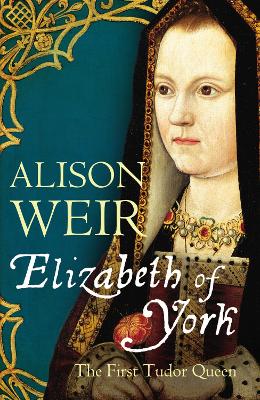Reviewed by Rinn on
I learnt about the Tudors endlessly at school. It seemed to be our history topic every other year, but we always started with the infamous Henry VIII, and then moved on to his children. Therefore I really know very little about Henry VII, and his wife Elizabeth, in comparison – particularly Elizabeth, who barely seems to have gotten a mention in the school textbooks. It seemed like this book, by well-known historical writer Alison Weir, would be a good introduction to the ‘first Tudor queen’.
Whilst this book was immensely detailed and clearly Weir cares a lot about the subject matter and did her research very carefully, it perhaps did not feel like the right choice for someone with very little knowledge on Elizabeth to begin with. I just felt glad that I already had a lot of knowledge of later in the period, otherwise I think this book would have been very confusing. For anyone without a prior knowledge of English history, this would not be the right book at all. As you might have noticed, our monarchs have never been creative when it came to choosing names, so history books can often get confusing, what with endless Henrys, Elizabeths, Thomases etc… Obviously this is nothing to do with the author, but I feel like a family tree might have been to some advantage here, especially as the book opens a while before the birth of Elizabeth.
It is also not an easy book to dip in and out of, which I like to do with some history books – some I can read all the way through, others I’d rather just read certain bits. There are chapters only, no sub-chapters or even headings or sub-titles, which made it really quite difficult to work out where I wanted to focus on or not. And whilst some sections were really interesting – for example on Elizabeth’s childhood, her marriage with Henry VII, others were really quite dull. Weir also seems to have a habit of listing items and prices, which seemed unnecessary in some places – although the conversion to modern day currency was interesting, making the opulence of the monarchs all the more clear.
Overall, an interesting book that might be a difficult read for some, and that could definitely have benefited from sub-titles or sub-chapters, easily allowing the reader to pick out sections to read. It feels quite a heavy text without it, and whilst this may work for some, it doesn’t feel like a good place to start for those unfamiliar with this area of history.
Reading updates
- Started reading
- 1 January, 2017: Finished reading
- 1 January, 2017: Reviewed
